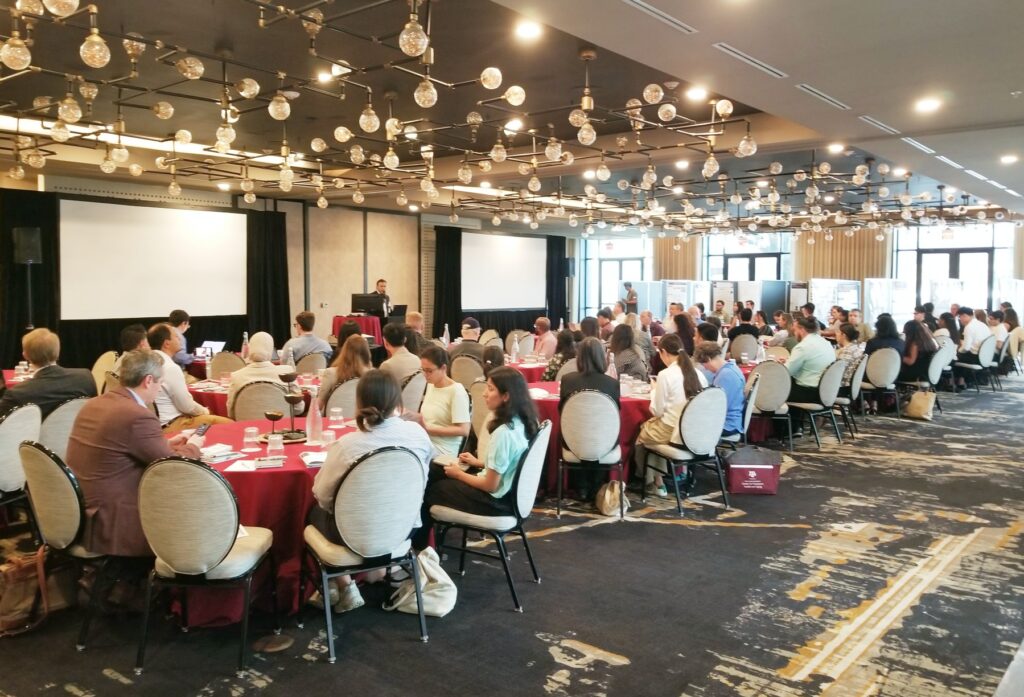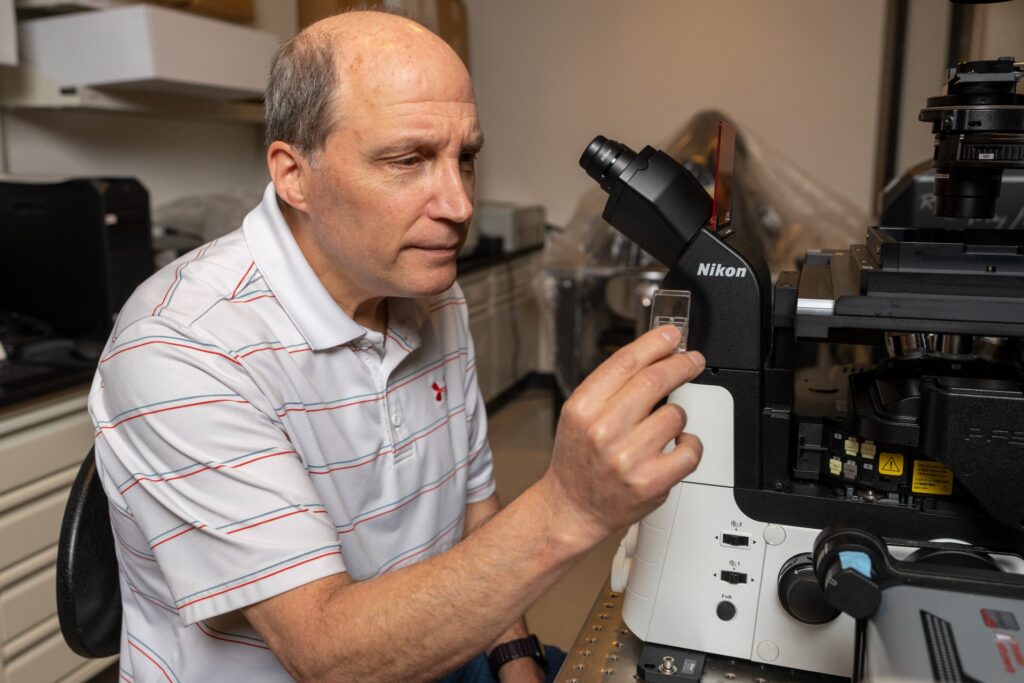- La Feria Community Holds Succesful Business Mixer Event
- Little Nashville to Take Place in Downtown Mercedes
- Lions Basketball Captures District Gold
- La Feria ISD Students Compete in Regional Chess Tournament
- Lions End First Half of 32-4A on a High Note
- La Feria ISD Held Another Successful Parent Conference
- Strong Appearance for Lions at Hidalgo Power Meet
- LFECHS Students Get to Meet Local Actress
- Students Participate in Marine Biology Camp
- Two LFECHS Students Qualify for All-State Band
Fight Against Cancer Brings Experts Together To Discuss Strategies, Solutions
- Updated: June 23, 2024

By Paul Schattenberg
Investigating and accelerating cancer prevention and treatment was the goal when more than 90 people gathered to exchange ideas and learn about new and existing research toward fighting cancer at the Texas A&M Health Center of Excellence in Cancer Research symposium in College Station.
The second annual Cancer Research Symposium: Innovations in Cancer Research was supported by the Cancer Prevention and Research Institute of Texas, CPRIT, which has the goal of facilitating and accelerating advancements in cancer prevention and cures.
The event involved many from across The Texas A&M University System, including the Texas A&M College of Agriculture and Life Sciences, the Texas A&M Health Science Center and the Texas A&M School of Medicine. Distinguished speakers included experts in their respective fields who have contributed considerably to cancer treatment and prevention.
“We were fortunate to have these distinguished presenters share their work and insights with others who have an interest in and dedication to that purpose,” said David Threadgill, Ph.D., head of Department of Nutrition at Texas A&M.
Leading the charge for cancer research at Texas A&M
In 2022, the Texas A&M Health Center of Excellence in Cancer Research was funded by a Texas Regional Excellence in Cancer, TREC, award from CPRIT. The center is designed to create a powerful collaborative environment that fuels innovation and accelerates breakthroughs.
Center director Kenneth Ramos, M.D., Ph.D., opened the symposium and set the tone for collaboration. Ramos is also associate vice president for research at the Texas A&M Health Science Center and assistant vice chancellor for health affairs with The Texas A&M University System.

An accomplished physician-scientist and transformational leader, Ramos and his research group were the first to establish a role for retinoblastoma proteins as master regulators of epigenetic signaling. They later characterized novel targets for the regulation of cancer cells.
Ramos is currently studying variations of LINE-1s in the human genome, a family of “jumping genes” that can move around in the genome and go into overdrive in cancer patients. Ramos’ research examines their functional genetic interactions and the utility of circulating LINE-1 proteins as prognostic and diagnostic biomarkers of cancer.
Joining Ramos in presentations was center deputy director Robert Chapkin, Ph.D., William W. Allen Endowed Chair in Nutrition and Chronic Disease Prevention with appointments in the Texas A&M College of Agriculture and Life Sciences Department of Nutrition and Department of Biochemistry and Biophysics. Chapkin presented “Dysregulation of Cellular Membrane Lipid Homeostasis is a Crucial Modulator of Cancer Risk.”
Chapkin is a National Institutes of Health National Cancer Institute R35-Outstanding Investigator Awardee and Fellow of the American Association for the Advancement of Science and American Society for Nutrition.
Chapkin has made highly significant precision medicine-related contributions through the study of dietary and botanical modulators related to stem cell biology and chronic inflammatory diseases. His research centers on colon cancer prevention by investigating the impact of dietary fat, fiber and gut microbiota on chronic disease processes.
About the Texas A&M center of excellence in cancer
The center’s primary focus is mentoring early career investigators interested in cancer research. It supports four core services: a single-cell data science core, a cancer prevention clinical genomics core, an administrative core and an evaluation core.
“The center serves as a hub of innovative cancer research and resources to address cancer-related issues impacting the health and welfare of the people of Texas,” Ramos said.
The central theme of the center is the study of gene environment and lifestyle interactions.
“At the center, various cancer researchers from different disciplines come together to share knowledge and generate new ideas,” Chapkin said. “By supporting emerging researchers, the center helps foster a culture of innovation and ensures a sustainable pipeline of talent dedicated to curing cancer.”
The infrastructure created by TREC will be sustained with extramural and intramural resources that grow Texas A&M’s cancer research base and enhance its impact on the prevention and treatment of cancer in Texas and beyond.
Researchers and topics of interest
Among the symposium presenters was Jianxun “Jim” Song, Ph.D., a professor at Texas A&M’s School of Medicine. His presentation, “Empowering Antitumor Immunity via Engineered Microbes,” focused on T cells and their use in immunotherapy. Most of his research efforts are directed toward developing and optimizing strategies for utilizing highly reactive T lymphocytes for cell-based therapies.
Extramural presenters included Ken Chen, Ph.D., a professor in the Department of Bioinformatics and Computational Biology and director of bioinformatics at the MD Anderson Cancer Center, Houston, who discussed cellular-molecular signatures associated with cancer. Zhiqiang An, Ph.D., a professor and director of the Texas Therapeutics Institute, University of Texas Health Science Center, Houston, presented “Antibodies Targeting the Leukocyte Immunoglobulin-like Family of Receptors for Cancer Therapy.”
The keynote speaker was John Quackenbush, Ph.D., Henry Pickering Walcott Professor of Computational Biology and Bioinformatics and director of the Harvard Health Data Science Center. His presentation was “Why Networks Matter: Embracing Biological Complexity.”
Quackenbush trained in theoretical physics and completed a fellowship with the Human Genome Project. These experiences led him to the Salk Institute at Stanford University and The Institute for Genomic Research before joining Harvard in 2005.





